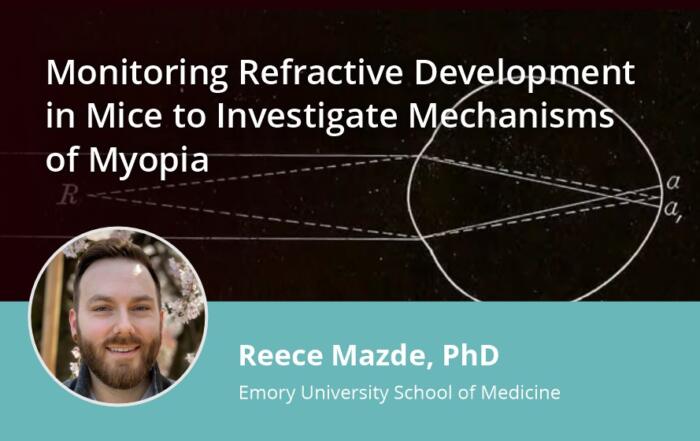Oliver W. Gramlich, PhD, provides an in-depth discussion about the pathobiology and visual phenotype of immune-mediated optic neuropathies.
Multiple sclerosis (MS), neuromylitis optica spectrum disorders (NMOSD), and myelin oligodendrocyte glycoprotein antibody-associated disease (MOGAD) all feature distinct clinicopathologic phenotypes. These phenotypes will be highlighted in relevant preclinical models of optic neuritis by utilizing highly translational functional and structural measurements of vision.
The webinar features an introduction of relevant animal models, and explains pertinent experimental techniques ranging from behavioral assessment of visual acuity (VA) with the OptoDrum, to electrophysiology recordings via pattern electroretinography (pERG) and visual evoked potential (VEP) recordings, to structural imaging of the retina with optical coherence tomography (OCT).
Key Topics Include:
- Introduce the clinical relevance and pathobiology of optic neuritis
- Familiarize the audience with novel, autoantibody-induced in vivo models of NMOSD and MOGAD optic neuritis
- Recap of the MOG-induced experimental autoimmune encephalomyelitis (EAE) optic neuritis model
- Summarize translational methods of visual function and structure (VA, pERG, VEP, OCT) for preclinical drug testing
Who Should Attend?
Researchers working in the field of vision science, multiple sclerosis-related optic neuritis and glaucoma, neuroimmunology, and neuroinflammation.
Click to watch the webinar recording. To view the presentation full screen simply click the square icon located in the bottom-right corner of the video-viewer.
Resources
Presenters
Research Assistant Professor
Ophthalmology and Visual Sciences
The University of Iowa







